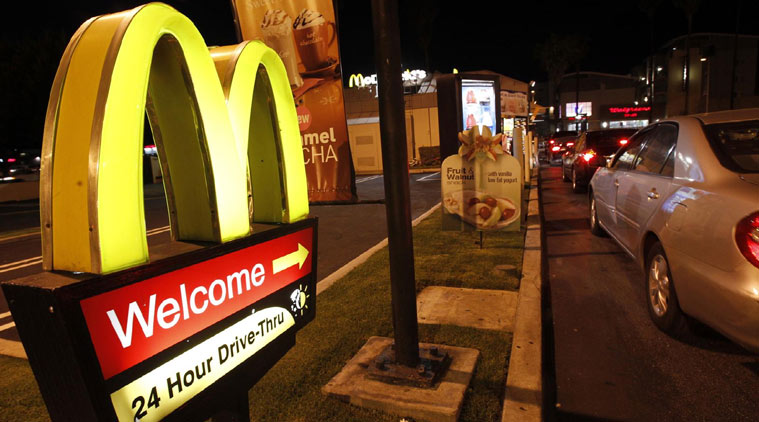According to the Act, a warning label saying “contains caffeine” is compulsory when sweetened carbonated drinks is sold.

McDonald’s sells three branded soft drinks— Coke, Fanta, Thumbs up. While the brands sell their beverage with the warning on packaged bottles, McDonald’s outlet in Kolhapur was first to have been found contravening the regulation on its plastic and paper cups, used to serve the drink.
The Maharashtra Food and Drug Administration (MFDA) has issued a prohibition order to Hardcastle Restaurants Pvt. Ltd, which operates quick service food chain McDonald’s in India, to immediately stop sale of beverages at its 60 outlets across Maharashtra for contraventions under the Food Safety and Standards Act, 2006 .
In its order, MFDA has said that the popular chain did not comply with the mandatory warning to label its disposable containers whenever carbonated beverages were sold to customers. According to the Act, a warning label saying “contains caffeine” is compulsory when sweetened carbonated drinks is sold.
McDonald’s sells three branded soft drinks— Coke, Fanta, Thumbs up. While the brands sell their beverage with the warning on packaged bottles, McDonald’s outlet in Kolhapur was first to have been found contravening the regulation on its plastic and paper cups, used to serve the drink. Of over 500 McDonald’s outlets in India 60 are in Maharashtra.
“The appellant is the manufacturer of sweetened carbonated beverage with added caffeine and serves all kinds of public including kids, pregnant women, lactating women etc. Considering the ill effects of caffeine and that the appellant serves it by the way of manufacturing caffeinated drinks without disclosing the contents (i.e. CAFFEINE) to highly susceptible groups of public like kids, pregnant women, lactating mothers etc. that can have serious ill effect on their health (sic),” the order said.
The violation was first detected by Kolhapur’s food safety officer, B D Mule in July 2016. The order states that apart from “serious hygiene/ sanitation related issues” the paper cups served to customers had no warning of “contains caffeine”.
Caffeine, one of the most commonly consumed psychoactive drugs, varies from 40 to 80mg in carbonated drinks. Its intake beyond 400 mg in a day is considered a high dose. Generally, coffee-addicted consumers have an intake of over 250 mg caffeine in a day. While US FDA allows its consumption in moderate quantities, Indian regulation requires labelling of “contains caffeine” in its regulation 2.4.5(38) of Food Safety and Standards Act.
The Kolhapur FDA sent a prohibition order to McDonald’s in 2016 to stop sale of beverages following the inspection. The food-chain stopped the beverages sale but later appealed to the FDA commissioner against the prohibition order. “We have observed that none of the Mcdonald’s outlet show the caffeine warning on their containers. Across Maharashtra, we have instructed all joint commissioners to inspect local outlets and prohibit its sale,” said Harshdeep Kamble, FDA commissioner.
Additionally, instructions have been issued to all joint commissioners to inspect similar food-joints that sell soft drinks to customers in unpackaged cups or glasses.
When contacted, the spokesperson for McDonald’s told The Indian Express, “McDonald’s India adheres to all statutory requirements, and is in compliance with all applicable laws pertaining to mandatory food labelling. At McDonald’s India, the health, safety and well-being of our customers are paramount. We have always conformed to the highest quality and food safety standards and will continue to do so at all times “
No comments:
Post a Comment